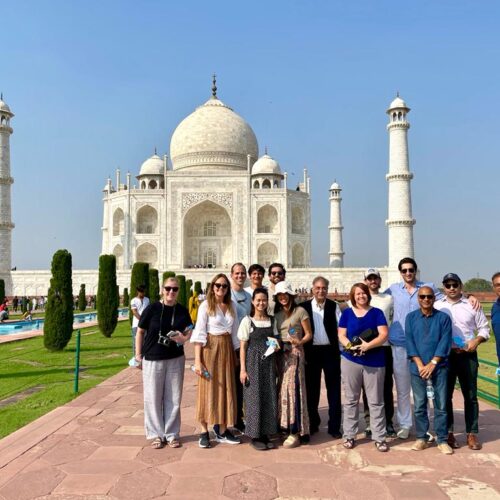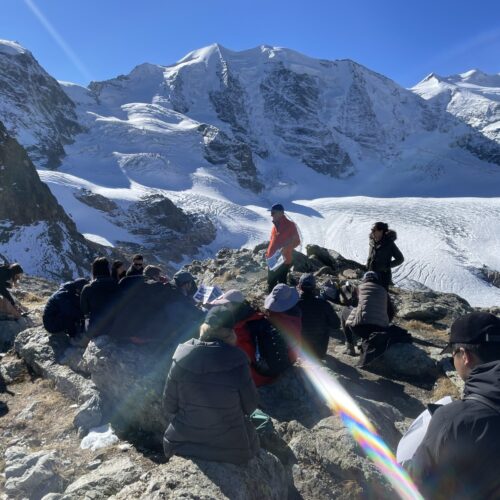In October 2022, The Lauder Institute held two Lauder Intercultural Ventures (LIVs) in India and Switzerland. LIVs are an intrinsic part of the Lauder 2-year program and provide an opportunity to road test lessons on intercultural leadership in the context of a week-long off-site immersion and related academic work. Each LIV, led by a faculty member, focuses on a theme relevant to the destination’s historical, social, political, economic, and/or cultural context. Learn about the themes for our Fall LIVs below.

India
Cities of Tomorrow, Blueprints of Yesterday
This LIV engaged with the central question of how cities and spaces with illustrious premodern histories and visible pasts contend with the opportunities and challenges of imagining new urban futures. It explored India’s urban heritage and architecture – what might have been involved in building them and maintaining them over time, and how their significance has changed for patrons, visitors, and citizens over the generations.
While the geographic focus was Delhi, its neighboring areas, Agra and Udaipur, the historic focus spanned the twelfth century to current times. During the LIV, students visited heritage landmarks of architectural significance, analyzed the multiple city sites of India’s capital Delhi, and interacted with those directly involved in transforming the urban fabric of India’s dense metropolitan settlements.
Below is an insider’s look at the India LIV. Watch now:

Switzerland
Living Sustainability
This LIV explored Switzerland’s dedication to sustainability in various aspects of daily life, education and business. The country as a whole as well as several of its major cities consistently rank at or near the top of various global sustainability surveys, and Swiss residents enjoy some of the highest living standards and life expectancies in the world. During this LIV, students learned about the United Nations Sustainability Development Goals (SDGs) and how these goals can be reached.
During the LIV, students visited various key sites to explore how sustainability is deeply rooted in Swiss culture, how residents are genuinely connected to nature, and how education from Kindergarten to University plays a crucial role in promoting the value of a clean and healthy environment. Students also learned why the Alps are experiencing an increase in temperature that is twice that of the global average, why actions to protect the residents are so important, and why extraordinary investments are required to enhance the safety of mountain communities.


